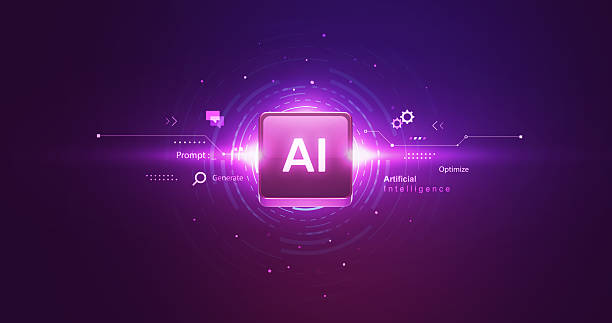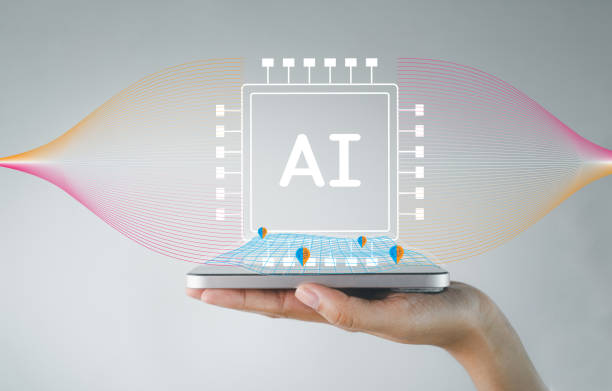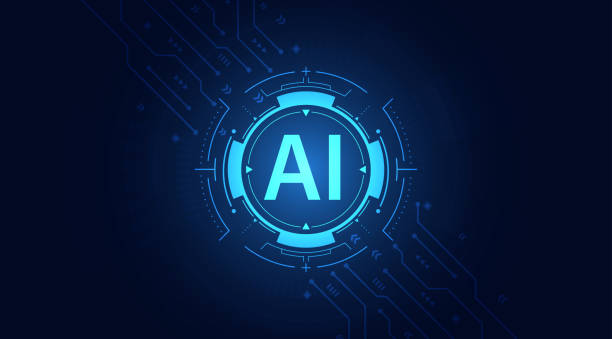What is Artificial Intelligence? Definition and Key Concepts

Artificial Intelligence (#ArtificialIntelligence) is a branch of computer science that deals with building machines that can perform tasks that usually require human intelligence.
These tasks include learning, problem-solving, pattern recognition, language comprehension, and decision-making.
In other words, artificial intelligence attempts to simulate human cognitive abilities in machines.
Key concepts in artificial intelligence include Machine Learning (#MachineLearning), Deep Learning (#DeepLearning), Neural Networks (#NeuralNetworks), Natural Language Processing (#NaturalLanguageProcessing), and Computer Vision (#ComputerVision).
Each of these fields has its own specific approaches and techniques for solving problems.
For example, machine learning allows machines to learn from data without being explicitly programmed, while deep learning uses neural networks with multiple layers to analyze complex data.
The ultimate goal of artificial intelligence is to create systems that can act independently and intelligently, make decisions, and solve problems.
These systems can be used in various fields, including healthcare, transportation, manufacturing, and customer service.
In fact, artificial intelligence seeks to create a world in which machines can collaborate with humans and make life easier and more efficient for everyone.
Does your current website create the trust that potential customers should have in your business? If the answer is no, it’s time to have a professional and impactful corporate website with Rasaweb.
✅ Completely custom design tailored to your brand identity
✅ Increase lead generation and credibility of your business in the eyes of customers⚡ Contact us for a free consultation!
History and Evolution of Artificial Intelligence

The history of artificial intelligence dates back to the mid-20th century.
In 1956, a conference was held at Dartmouth College, which is known as the official starting point of this field.
At this conference, researchers gathered to discuss the possibility of building machines that could think.
In the early decades, artificial intelligence was accompanied by great enthusiasm, and significant advances were made in areas such as problem-solving and computer games.
However, the limitations of this field soon became apparent, and artificial intelligence entered a period of stagnation, known as the “AI winter.”
During this period, lack of funding and unrealistic expectations slowed progress.
In recent decades, with remarkable advances in hardware and software, artificial intelligence has revived.
The development of machine learning and deep learning, especially using neural networks, has enabled artificial intelligence to solve more complex problems and find wider applications.
Today, artificial intelligence is used in various fields, including self-driving cars, facial recognition, language translation, and virtual assistants, and is rapidly developing.
Types of Artificial Intelligence: Approaches and Classifications

Artificial intelligence can be categorized based on various criteria.
One of the most common methods is to divide it based on abilities and performance.
Based on this, artificial intelligence can be divided into two main categories: Weak AI (#WeakAI) and Strong AI (#StrongAI).
Weak AI, or narrow AI, refers to systems designed to perform specific tasks.
These systems can perform very well in a specific field, but they do not have the ability to generalize their knowledge to other fields.
For example, a facial recognition system or a chess program are examples of weak AI.
In contrast, strong AI refers to systems that have the ability to understand, learn, and solve problems at the human level.
These systems can generalize their knowledge to different fields and act independently and intelligently.
No strong AI system has yet been built, but this is the ultimate goal of many researchers in this field.
In addition, artificial intelligence can be classified based on learning methods, including supervised learning, unsupervised learning, and reinforcement learning.
| Type of AI | Description | Examples |
|---|---|---|
| Weak AI | Systems designed to perform specific tasks | Facial recognition, chess |
| Strong AI | Systems that have the ability to understand, learn, and solve problems at the human level | (Still under development) |
Applications of Artificial Intelligence in Various Industries

Artificial intelligence is currently used in various industries and has had a significant impact on them.
In the field of healthcare, artificial intelligence can help in diagnosing diseases, developing drugs, and providing personalized care.
Artificial intelligence in the automotive industry has made self-driving cars possible, and in the financial industry, it helps with fraud detection and risk management.
In the manufacturing sector, artificial intelligence can help improve efficiency, reduce costs, and increase product quality.
In the retail industry, artificial intelligence can help personalize the customer shopping experience and improve inventory management.
In general, artificial intelligence can help improve decision-making, increase efficiency, and reduce costs in any industry where a lot of data is available.
This technology is changing the way we work and live and is expected to play an even more important role in the future.
For example, recommender systems used on shopping sites and streaming services are examples of artificial intelligence applications that help customers find the products and content they are interested in.
These systems analyze data related to user behavior, identify patterns, and provide recommendations based on them.
This increases customer satisfaction and increases sales.
Are you losing business opportunities due to an outdated website? With Rasaweb, solve the problem of not attracting potential customers through the website forever!
✅ Attract more high-quality leads
✅ Increase brand credibility in the eyes of customers
⚡ Get free consultation for corporate website design
Advantages and Disadvantages of Using Artificial Intelligence

The use of artificial intelligence has numerous advantages and disadvantages.
Among the advantages are increased efficiency, reduced costs, improved accuracy and speed in performing tasks, and the ability to solve complex problems.
Artificial intelligence can help humans perform tasks that are dangerous, repetitive, or tedious, and enable better and faster service delivery.
However, the use of artificial intelligence also has disadvantages.
These disadvantages include the high cost of development and implementation, the need for a lot of high-quality data, concerns about security and privacy, and the potential for job losses.
Also, artificial intelligence may create discrimination and inequality if the data used to train it is biased.
Another concern about artificial intelligence is the issue of accountability.
If an artificial intelligence system makes a decision that leads to damage, it is unclear who is responsible.
This issue requires further discussion and review, and appropriate laws and regulations must be put in place.
In general, the use of artificial intelligence requires attention to ethical, social, and legal aspects in order to benefit from its advantages and prevent its disadvantages.
Current Challenges and Limitations of Artificial Intelligence

Despite remarkable advances, artificial intelligence still faces numerous challenges and limitations.
One of these challenges is the lack of high-quality, labeled data.
Artificial intelligence systems need a lot of data to learn and improve their performance, but collecting and labeling this data can be time-consuming and expensive.
Another challenge is the issue of generalizability.
Artificial intelligence systems typically perform very well in a specific field, but they do not have the ability to generalize their knowledge to other fields.
This makes it impossible to use an artificial intelligence system in different fields, and there is a need to develop new systems for each field.
In addition, artificial intelligence still has limitations in understanding natural language and solving complex human problems.
Artificial intelligence systems may be fast at pattern recognition and performing calculations, but they do not have the ability to understand deep meaning and logical reasoning.
This makes it impossible to fully use them in areas that require creative thinking and complex reasoning.
Finally, ethical and social issues are also important challenges of artificial intelligence that require further attention and review.
The Future of Artificial Intelligence: Predictions and Possibilities

The future of artificial intelligence is very bright and full of possibilities.
It is predicted that in the coming years, artificial intelligence will be more widely used in various industries and will have a deeper impact on our lives.
Self-driving cars, intelligent virtual assistants, and advanced facial recognition systems are just some examples of artificial intelligence applications that are currently available and are expected to improve and expand in the future.
In addition, artificial intelligence is predicted to play a more important role in areas such as healthcare, education, and the environment.
For example, artificial intelligence can help doctors diagnose diseases and provide personalized treatments, help teachers provide adaptive and tailored education to each student’s needs, and help scientists solve complex environmental problems.
However, the development of artificial intelligence requires attention to ethical and social aspects.
It must be ensured that artificial intelligence is used fairly and responsibly and prevents discrimination and inequality.
Also, special attention must be paid to the issue of security and privacy and prevent the misuse of artificial intelligence.
In general, the future of artificial intelligence requires cooperation and coordination between researchers, policymakers, and the general public in order to benefit from the advantages of this technology and prevent its disadvantages.
| Field | Application of AI | Advantages |
|---|---|---|
| Healthcare | Diagnosis of diseases, drug development | Improved accuracy, reduced costs |
| Education | Adaptive learning, personalization | Increased efficiency, improved learning |
| Environment | Resource management, prediction of changes | Protection of the environment, reduction of risks |
The Role of Artificial Intelligence in Everyday Life

Artificial intelligence is increasingly playing a role in our everyday lives.
From virtual assistants like Siri and Alexa to recommender systems on shopping sites and streaming services, artificial intelligence is changing the way we interact with the world around us.
Artificial intelligence also plays an important role in the field of transportation.
GPS navigation systems use artificial intelligence algorithms to optimize routing and provide traffic information.
Self-driving cars are also an example of advanced applications of artificial intelligence in transportation that can help reduce accidents and improve efficiency.
In addition, artificial intelligence has extensive applications in the field of security.
Facial recognition systems can help identify suspicious individuals and prevent crimes.
Fraud detection systems can also help identify suspicious transactions and prevent fraud.
In general, artificial intelligence is becoming an integral part of our everyday lives and is expected to play an even more important role in the future.
Do you dream of a thriving online store but don’t know where to start?
Rasaweb is your comprehensive e-commerce website design solution.
✅ Attractive and user-friendly design
✅ Increase sales and revenue⚡ Get a free consultation
Skills Required to Work in the Field of Artificial Intelligence

Working in the field of artificial intelligence requires a combination of technical and non-technical skills.
Technical skills include knowledge of programming, statistics and probability, machine learning, and natural language processing.
Familiarity with programming languages such as Python and R, as well as machine learning libraries such as TensorFlow and PyTorch, is essential.
In addition, knowledge of statistics and probability is essential for understanding and analyzing data, as well as for designing and evaluating machine learning models.
Familiarity with machine learning algorithms and natural language processing techniques is also essential for solving various problems in the field of artificial intelligence.
In addition to technical skills, non-technical skills such as analytical thinking, problem solving, and communication are also very important for working in the field of artificial intelligence.
The ability to analyze complex problems and provide creative solutions, as well as the ability to communicate effectively with colleagues and customers, are among the skills that can contribute to success in this field.
In general, working in the field of artificial intelligence requires continuous learning and keeping up with the latest advances and technologies.
How to Learn Artificial Intelligence? Educational Resources and Paths

Learning artificial intelligence can be a challenging but very rewarding process.
Fortunately, a variety of educational resources and pathways are available to learn about this field.
These resources include online courses, books, scientific articles, and practical projects.
Online courses are one of the best ways to learn artificial intelligence.
Sites like Coursera, edX, and Udemy offer a variety of courses in artificial intelligence taught by prominent university professors and industry experts.
These courses typically include instructional videos, exercises, projects, and quizzes, and can help you learn artificial intelligence concepts and techniques.
In addition to online courses, books and scientific articles are also valuable resources for learning artificial intelligence.
Textbooks and references can help you understand basic and advanced artificial intelligence concepts, while scientific articles can familiarize you with the latest advances and research in this field.
Finally, doing practical projects is one of the best ways to learn artificial intelligence.
By working on real-world projects, you can apply your knowledge and skills and gain practical experience.
Also, participating in artificial intelligence competitions and challenges can help you improve your skills and compete with others.
Frequently Asked Questions
| Question | Answer |
|---|---|
| What is Artificial Intelligence? | It is the simulation of human intelligence in programmed machines to think like humans and mimic their actions. |
| What are the main branches of Artificial Intelligence? | Includes machine learning, deep learning, natural language processing, computer vision, and robotics. |
| What is Machine Learning? | It is a branch of AI that focuses on enabling systems to learn from data and identify patterns without explicit programming. |
| Mention examples of AI applications in our daily lives. | Voice assistants (such as Siri and Alexa), recommendation systems in Netflix and Amazon, self-driving cars, and facial recognition software. |
| What is Deep Learning? | It is a subset of machine learning that uses multi-layered (deep) artificial neural networks to process large amounts of data. |
| What is Natural Language Processing (NLP)? | It is a branch of AI that focuses on enabling computers to understand, interpret, and generate human language. |
| What are some ethical concerns related to AI? | Includes bias in data, privacy, job loss, and liability in case of errors. |
| What are the main benefits of AI? | Increased efficiency, improved decision-making, automation of repetitive tasks, and detection of complex patterns in data. |
| How is AI used in the healthcare field? | In diagnosing diseases, discovering drugs, analyzing medical images, and providing personalized care for patients. |
| How do you see the future of AI? | It is expected to continue to evolve at a rapid pace, affecting all aspects of human life, from industry to education and entertainment. |
And other services of Rasa Web Advertising Agency in the field of advertising
Smart Content Strategy: An innovative service to increase SEO ranking improvement through the use of real data.
Smart UI/UX: Designed for businesses looking to increase website traffic through precise audience targeting.
Smart Customer Journey Map: An exclusive service for growing sales based on precise audience targeting.
Smart Brand Identity: A combination of creativity and technology to increase sales by designing an attractive user interface.
Smart Direct Marketing: Designed for businesses looking to increase click-through rates through a search engine optimization content strategy.
And hundreds of other services in the field of internet advertising, advertising consulting, and organizational solutions
Internet Advertising | Advertising Strategy | Advertorial
Resources
What is Artificial Intelligence? IBM
,What is Artificial Intelligence (AI)? | SAS
,What is Artificial Intelligence (AI)? – Oracle
,What is Artificial Intelligence? (And why it matters) | Zendesk
? To be seen and elevate your business in the digital world, Rasa Web Digital Marketing Agency, with expertise in areas such as personal website design, SEO, and online advertising campaign management, is your partner to make your brand shine.
📍 Tehran, Mirdamad Street, next to Central Bank, South Kazerun Alley, Ramin Alley, No. 6



